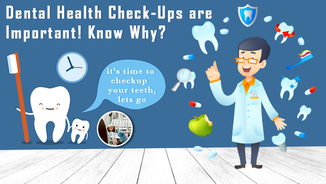
Bright Smiles: A Guide to Healthy Teeth
Achieving and maintaining healthy teeth is a journey that involves consistent care, good oral hygiene practices, and making informed choices. Let’s explore the essential aspects of cultivating bright smiles and fostering optimal oral health.
The Foundation: Daily Oral Hygiene Practices
The cornerstone of healthy teeth lies in daily oral hygiene practices. Brushing your teeth at least twice a day with fluoride toothpaste helps remove plaque, prevent cavities, and maintain fresh breath. Using a soft-bristled toothbrush and gentle circular motions ensures thorough cleaning without causing damage to your teeth and gums.
Flossing: Navigating Between Teeth for Complete Cleanliness
While brushing is crucial, it’s incomplete without flossing. Dental floss reaches areas between your teeth and along the gumline that a toothbrush might miss. Incorporate flossing into your daily routine to remove plaque and prevent gum disease. Proper flossing complements brushing, contributing to overall oral health.
Regular Dental Check-ups: Professional Care for Longevity
Routine dental check-ups are essential for healthy teeth. Dentists can detect early signs of issues like cavities, gum disease, or oral cancer. Professional cleanings help remove stubborn plaque and tartar buildup, contributing to the longevity of your teeth. Aim for biannual dental visits to receive personalized care and preventive guidance.
Balanced Nutrition: Nourishing Teeth from Within
The food you consume significantly impacts the health of your teeth. A balanced diet rich in calcium, phosphorus, and vitamin D is crucial for maintaining strong teeth and healthy gums. Include dairy products, leafy greens, nuts, and lean proteins in your diet to provide essential nutrients for optimal oral health.
Limiting Sugary Treats: Protecting Teeth from Decay
Excessive sugar consumption is a common culprit behind tooth decay. Limiting sugary treats and beverages helps protect your teeth from cavities. When you indulge in sweets, ensure you practice good oral hygiene afterward to mitigate the potential adverse effects on your dental health.
Hydration: Water as a Friend to Your Teeth
Drinking water is not only essential for overall health but also beneficial for your teeth. Water helps rinse away food particles, bacteria, and acids that can contribute to tooth decay. Choose water as your primary beverage, especially between meals, to maintain a hydrated and healthy oral environment.
Avoiding Harmful Habits: Preserving Tooth Structure
Certain habits can harm your teeth. Avoid using your teeth as tools for opening packages or cracking nuts, as this can lead to chips and fractures. Additionally, refrain from nail-biting and grinding your teeth, which can cause damage over time. Preserve the structure of your teeth by avoiding harmful habits.
Protective Measures: Mouthguards and Dental Care Products
If you engage in sports or activities that pose a risk of dental injury, consider using a mouthguard. Mouthguards protect your teeth from impact and prevent injuries. Additionally, choose dental care products with the American Dental Association (ADA) seal to ensure their effectiveness and safety in maintaining healthy teeth.
Teeth Whitening: Safe and Effective Approaches
If you desire a brighter smile, explore safe teeth-whitening options. Consult your dentist before using over-the-counter whitening products to ensure they are suitable for your teeth. Professional teeth-whitening procedures performed by a dentist offer effective and lasting results without compromising the health of your teeth.
Educating Children: Instilling Healthy Habits Early
Instilling healthy oral habits in children sets the foundation for a lifetime of bright smiles. Teach them proper brushing and flossing techniques, encourage a balanced diet, and schedule regular dental check-ups for them. Early education ensures that children develop a positive attitude towards oral care from a young age.
To delve deeper into maintaining healthy teeth, visit Healthy Teeth. Explore valuable insights and resources to support your journey towards optimal oral health. Bright smiles begin with a commitment to daily care, preventive measures, and informed choices that prioritize the well-being of your teeth.

